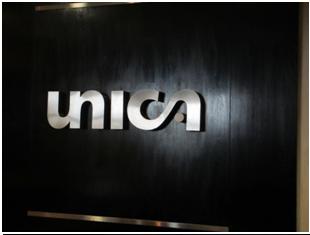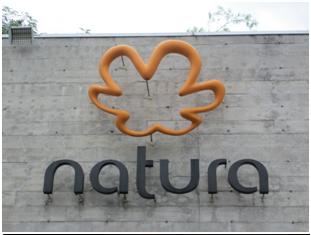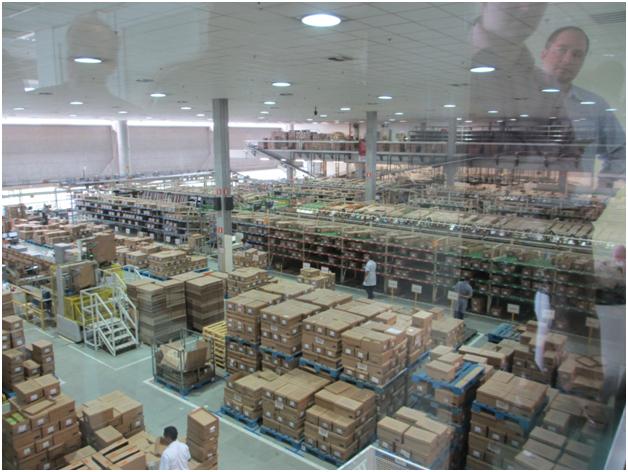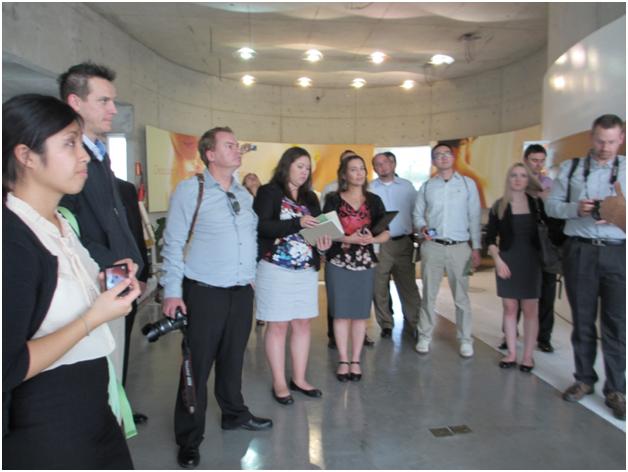Sustainability and Social Responsibility in Brazil
January 25, 2012
Each day our students will blog about some of their experiences on the Brazil Travel Course. Our first entry for Thursday, 1/19 comes from Elaine Ho Chen.

Sustainability and social responsibility was the theme for Thursday’s corporate visits. We visited
UNICA
, the Brazilian Sugarcane Industry Association and also Natura, a cosmetic company whose products are made with organic natural ingredients. There were several key words in each of the presentations that showed that Brazilians are focused on producing products that are sustainable and are socially and environmentally responsible. Both organizations discussed the principles of reducing greenhouse gas emissions creating products, processes that are renewable, sustainable, and positively impacting the lives of their stakeholders, employees, and the global community.
At UNICA, their presentation explained the sugarcane industry processes, the benefits of sugarcane produced ethanol, how it can reduce the dependence on the global oil supply and how Brazil should be an example of how successfully it can be integrated into daily energy usage. Sugarcane for sugar and ethanol is produced on only 2.2% of Brazil’s arable land without deforestation or adverse effects on food prices or supplies. It produces about 4-5 times more energy per unit more than other forms of ethanol such as corn, wheat and sugar beets and is a renewable, sustainable crop. Brazil has been able to successfully promote the usage of ethanol due to the integration of Flex Fuel vehicles that can use gasoline or ethanol and also with the government mandate that requires gasoline to have a minimum blend of at least 25% ethanol. There is a wide selection of Flex Fuel vehicles from 12 different automakers. 50% of cars in Brazil are Flex Fuel and 90% of new cars sold are Flex Fuel. They are also planning to integrate buses fueled by ethanol into the public transportation fleet and ethanol fueled planes. With the use of sugarcane ethanol instead of gasoline, greenhouse gas emissions can be reduced by 90%. The challenges they are facing now is that the production can vary because of the variation of season and the dependence on the agricultural side of rising land costs and unpredictable climate changes. They also were able to negotiate the removal of tariffs on import and export of ethanol to the U.S. which are the largest consumers of fuel and are in negotiations with the E.U. and in Asia. There will be many more challenges they will face, but they are moving in a positive direction to get the world thinking about using fuels to reduce greenhouse gases and improve the environment in a sustainable way.

At the factory tour of
Natura
, we were shown the various ways in which they are able to manage their production processes of their natural beauty product lines and makeup. They are able to do this by using high tech factories designed with automated inventory management systems, assembly lines that use less power by using natural forces such as gravity.

They also reduce greenhouse emissions by setting up production facilities in the countries they export to and add water to their products at their destination countries rather than shipping the whole thing including the water from the factory in Brazil. Natura products include ingredients that are native to Brazil and are selectively harvested in a way that does not damage or impact the natural environment and rainforest. Some of these ingredients include acai, brazil nuts, cacao, lemongrass, pitanga, caju and many other natural products only found in the rainforests of Brazil. The entire harvesting and operations processes are managed and well supervised to ensure the protection of the environment and the sustainability. The ingredients are harvested by local people in remote regions that would have otherwise have no other way of earning any financial means. This boosts many communities in these regions by helping create schools, libraries, roads, bridges and anything else the community needs. Besides nature, Natura’s other focus is on community. This is demonstrated in many places seen around the factory in which are complimentary to all employees and their families, such as the daycare, cafeteria and sports club.
Overall, the day was packed with a very active schedule, and it was full of interesting ways of learning about the importance of people, community, family and environment to the culture of Brazil. Brazilian enterprises aim to set an example of sustainability and social responsibility to the rest of the world.
– Elaine

